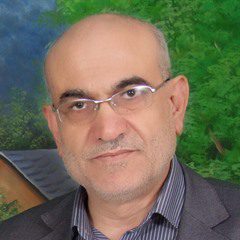President Mahmoud Abbas has warned that if all attempts to return to the negotiating table fail then the Palestinian Authority will approach the UN General Assembly seeking recognition as a non-member state. He cited Switzerland and the Vatican State as examples of such states.
Of course, if Palestine is recognised as a state, and admitted to the UN as an observer, albeit a non-member, then the conflict with the Israeli occupation becomes a clash over borders between two states. In the words of senior Palestinian negotiator Saeb Erekat, the end result would be a “country under occupation”, and not “occupied territories”.
However, such rational thought from Erekat should not actually apply to the case of Palestine. When Germany invaded and occupied France it set up a collaborating government, as did the US in Vietnam. The Israelis, though, are a group of people who have occupied Palestine and displaced the indigenous people under a dubious pretext.
The Oslo Accord changed the nature of the conflict with its outcome, the Palestinian Authority, dependent on the occupation. The Palestinian liberation movement also ended up with some of its leadership inside the country, and some outside.
What they are trying to do today is change the PA into a state. As a clash between two states the conflict would then be open for solutions from the international community, as many others have been. This problem could not be solved unless the Palestinians refuse to play ball and regard the PA as a power dependent on, but not a representative for, the occupation. However, this will not be accepted internationally because Palestinian resistance would still be described as “terrorism”.
As it has been said many times, the current situation is not surprising, following as it does the programme by which the current PA leadership, supported by pro-Israel Zionists, removed any power from Yasser Arafat because he wanted to reject Oslo. Many believe that Arafat was then poisoned once a satisfactorily pliant alternative was found.
From the beginning, the current PA leadership showed that its political programme is built on cooperation with the Israelis in order to return to the status quo before the Aqsa Intifada of 2000. The PA, it is envisaged, will extend its power on the land left after the Israeli separation wall, settlements and settler-only roads have taken the lion’s share of the West Bank. Ariel Sharon’s long term solution was always to turn temporary positions into permanent facts. With, of course, some tweaks here and there to allow the PA leadership to declare that they hadn’t made any major concessions. We are meant to overlook the fact that they have already given up on the Palestinian land occupied in 1948.
Whether they make concessions or not, it is to their benefit for the Israeli occupation to feel at ease in their presence. Meanwhile, Israel will continue to Judaise the land, including Jerusalem, with little or no objections or opposition.
What is happening is useless for the future of the Palestinian issue, and what is strange is that there are people who defend it with a detestable partisan spirit because of their hatred of Hamas and the Islamists. Moreover, it is a common belief that Hamas committed a big mistake by taking part in Oslo-sanctioned elections in 2006. This, in effect, gave the current leadership in Ramallah the green light to pursue their aims.
The reconciliation efforts are based on the same premise outlined above which more or less liquidates the Palestinian issue and turns it into a clash over borders between two states. Post-Arab Spring, nothing much has changed, with security cooperation with the Israelis a priority; calls to halt such collaboration are rejected as “absurd”, while the PA leadership refuses any kind of resistance and a new intifada. They now stand between begging for a return to negotiations without a settlement freeze and the “non-member state” proposal which will bring grief to the whole issue.
If negotiations are resumed who believes that Netanyahu will offer more than what was on offer at Camp David in 2000? The PA considered that offer to be a trap from which they escaped, but if negotiations fail, they are going down the UN non-member state route and the scenario detailed above will be played out.
The only solution for this problem is a popular revolution which gets rid of the current programme and its leaders and introduces a new phase of resistance against Israel’s occupation. This is what the PA and its partners are hoping to avoid, to the detriment of the Palestinian liberation issue.
The views expressed in this article belong to the author and do not necessarily reflect the editorial policy of Middle East Monitor.








